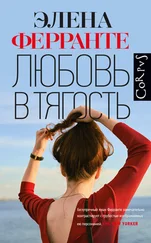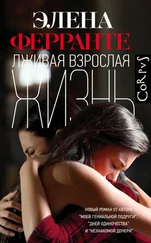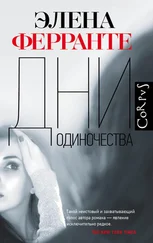Eventually, I also decided to separate from her bracelet. I stopped wearing it, put it in a drawer in my bedside table. But, whenever I remembered it my stomach hurt, I broke into a sweat, I had thoughts that wouldn’t go away. How was it possible that my father and Costanza had loved each other for so long—even before my birth—without either my mother or Mariano knowing? And how had my father fallen in love with the wife of his best friend not as the victim of a fleeting infatuation but—I said to myself—in a deliberate way, so that his love still endured? And Costanza, so refined, so well brought up, so affectionate, a visitor in our house as long as I could remember, how had she been able to hold on to my mother’s husband for fifteen years right before her eyes? And why had Mariano, who had known my mother forever, only in recent times squeezed her ankle between his under the table, and—as by now was clear, my mother swore to me over and over—without her consent? What happened, in other words, in the world of adults, in the heads of very reasonable people, in their bodies loaded with knowledge? What reduced them to the most untrustworthy animals, worse than reptiles?
The anxiety was so intense that to these and other questions I never sought true answers. I repressed them as soon as they surfaced, and even today I have a hard time returning to them. The problem, I began to suspect, was the bracelet. Evidently, it was as if impregnated with the moods of that affair, and though I was careful not to open the drawer I’d put it in, it imposed itself anyway, as if the glitter of its stones, its gold, scattered afflictions. How was it possible that my father, who seemed to love me without limits, had taken away my aunt’s gift and given it to Costanza? If the bracelet originally belonged to Vittoria, and therefore was a sign of her taste, of her idea of beauty and elegance, how could Costanza like it so much that she had kept it and worn it for thirteen years? How, I thought, had my father, so hostile to his sister, so different from her in every way, convinced himself that a piece of jewelry belonging to her, an ornament meant for me, could be suitable not for my mother, for example, but for that very elegant second wife of his, the descendant of goldsmiths, so wealthy that she had no need for jewelry? Vittoria and Costanza were such dissimilar women, they diverged in every way. The first had no education, the second was extremely cultivated; the first was vulgar, the second refined; the first was poor, the second rich. And yet, for me, the bracelet pressed them into one another and confused them, confusing me.
Today I think it was thanks to this obsessive brooding that I slowly managed to remove myself from my parents’ suffering, to convince myself that their reciprocal accusations, their pleading with each other, their mutual contempt left me completely indifferent. But it took months. At first I floundered as if I were drowning and, terrified, I looked for something to hold on to. Sometimes, especially at night, when I woke up feeling distraught, I thought that, even though my father was the declared enemy of every form of magic, he had feared that that object, given its source, could magically hurt me, and so he had removed it from the house for my well-being. That idea soothed me, it had the advantage of restoring a loving father who from my first months of life had tried to protect me from Aunt Vittoria’s malice, that aunt-witch’s desire to take possession of me and make me like her. But it didn’t last long as, sooner or later, I ended up asking myself: if he loved Costanza to the point of betraying my mother, to the point of separating from her and me, why did he give her a maleficent bracelet? Maybe—I fantasized in my half sleep—because he liked the bracelet so much and giving it to her kept him from throwing it into the sea. Or because, bewitched by the object himself, before getting rid of it he had wanted to see it at least once on Costanza’s wrist, and it was that desire that had lost him. Costanza had seemed to him still more beautiful than she already was, and the enchanted bracelet, binding him to her forever, prevented him from continuing to love only my mother. To protect me, in other words, my father had ended up subjecting himself to the evil magic of his sister (I often went so far as to imagine that Vittoria had foreseen every detail of that wrong move of his), and that had ruined the whole family.
The return to childish fairy tales just as I felt I was truly emerging from childhood had for a while the advantage of reducing to the minimum not only my father’s responsibility but mine, too. If, in fact, Vittoria’s magic arts were at the origin of all the wrongs, the current drama had begun when I was just born, and so I had no guilt, the obscure force that had led me to seek out and meet my aunt had been at work for some time, I had nothing to do with it, I , like the small children of Jesus, was innocent. But this picture faded, too, sooner or later. Curse or not, the fact was that thirteen years ago my father had judged beautiful the object that his sister had given me, and its beauty had been ratified by a refined woman like Costanza. As a result, an incongruous juxtaposition of vulgarity and refinement again became central, even in the fairy-tale world I was constructing; and that further absence of clear boundaries, at a moment when I was losing every old orientation, confused me even more. My aunt, who was vulgar, became a woman of taste. My father and Costanza, people of taste, became—as the wrongs they had done my mother and even the hateful Mariano also demonstrated—vulgar. So sometimes before falling asleep I imagined an underground tunnel that put in communication my father, Costanza, and Vittoria, even against their will. Despite all their claims to being different, they seemed to be made of the same clay. My father, in my imagination, grasped Costanza’s buttocks and pulled her toward himself just as Enzo had done in the past with my aunt and certainly with Margherita. So he had caused suffering for my mother, who wept as in the fairy tales, filling jars and jars with tears until she lost her reason. And I, who had stayed with her, would have a dull life, without the amusement that he could give me, without his intelligence about the things of the world, qualities that Costanza, Ida, and Angela would get the benefit of instead.
This was the atmosphere when, coming home from school one day, I discovered that the bracelet was painfully meaningful not only for me. I opened the door of the house with my keys, I found my mother in my room, standing in front of the night table, lost in thought. She had taken the bracelet out of the drawer and was holding it in her hand, staring at it, as if it were the necklace of Harmonia and she wanted to pierce the surface to arrive at its properties as a maleficent object. I noticed then that her shoulders were rounded, she had become thin and hunched.
“Don’t you wear it anymore?” she asked noticing my presence but without turning.
“I don’t like it.”
“You know it wasn’t Vittoria’s but your grandmother’s?”
“Who told you that?”
She said that she had telephoned Vittoria and had learned from her that her mother had left it to her when she was dying. I looked at her in bewilderment. I thought there was no reason ever to speak to Vittoria, because she was unreliable and dangerous, but evidently the ban concerned only me.
“Is it true?” I asked, showing skepticism.
“Who knows, almost everything that comes from your father’s family, including your father, is false.”
“Did you talk to him?”
“Yes.”
To get to the bottom of the matter she had assailed my father—is it true the bracelet was your mother’s, is it true she left it to your sister?—and he had stammered that he was very fond of that piece of jewelry, he remembered it on his mother’s wrist, and so, when he found out that Vittoria wanted to sell it, he had given her some money and taken it.
Читать дальше
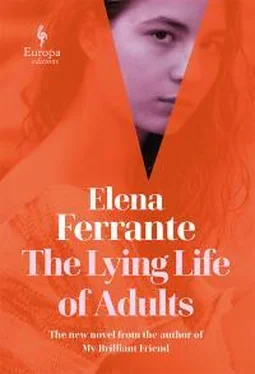
![Элена Ферранте - История о пропавшем ребенке [litres]](/books/32091/elena-ferrante-istoriya-o-propavshem-rebenke-litres-thumb.webp)
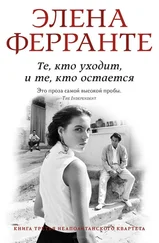
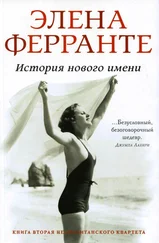
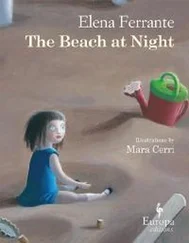
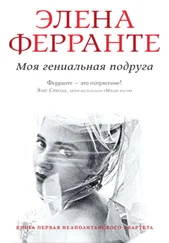
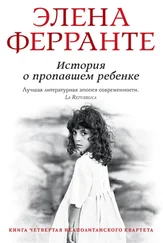
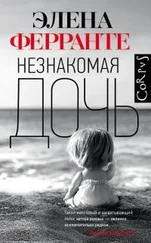
![Элена Ферранте - Дни одиночества [litres]](/books/404671/elena-ferrante-dni-odinochestva-litres-thumb.webp)
